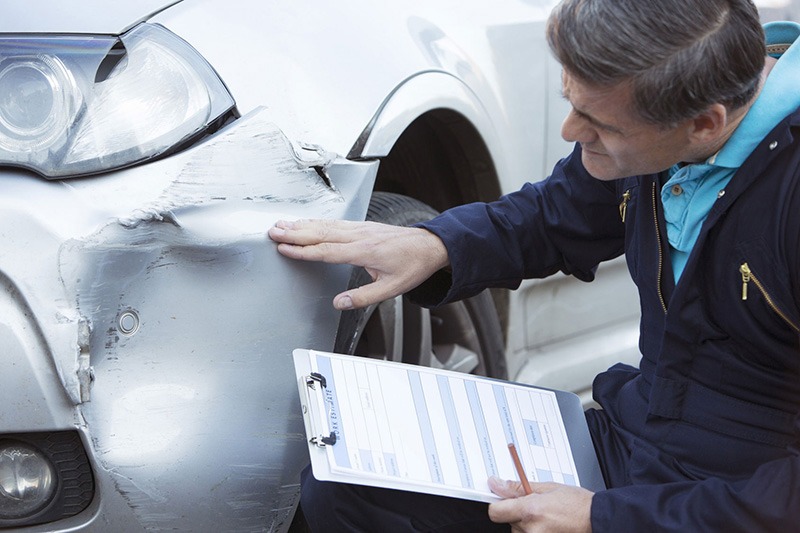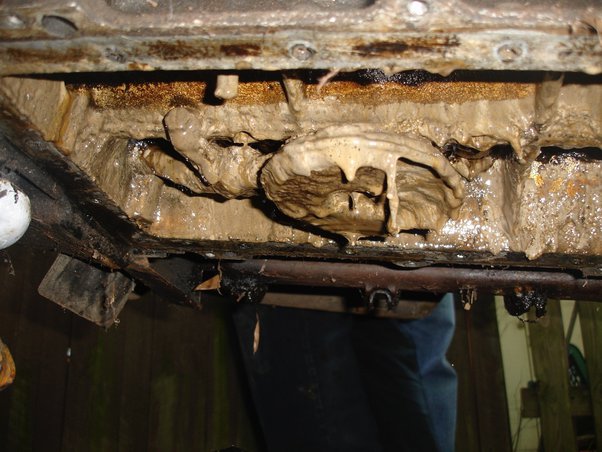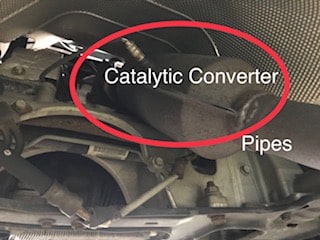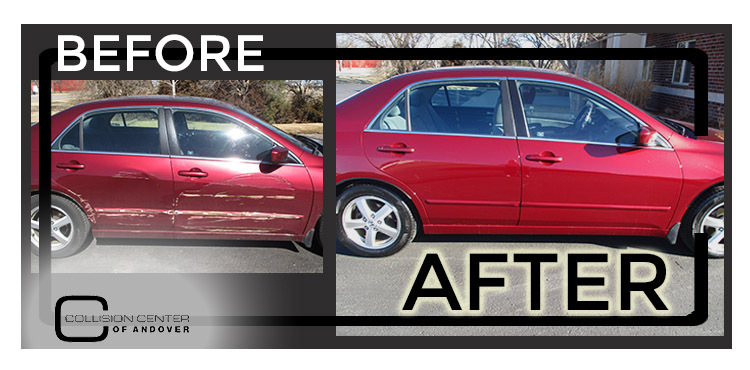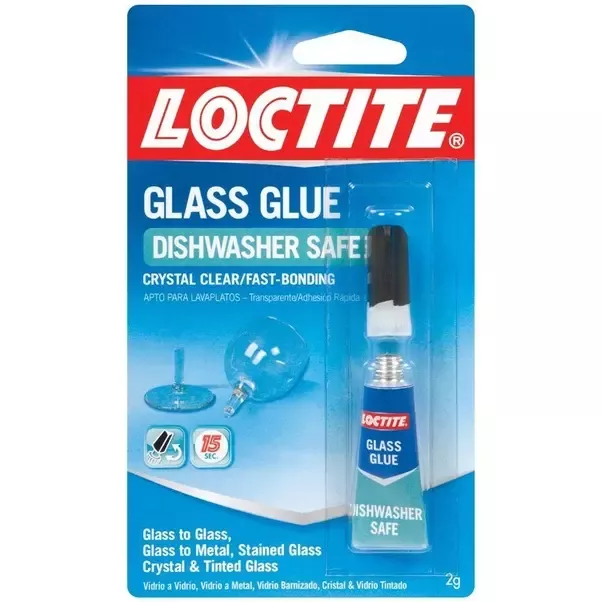Can Car Insurance Help With Repairs
Car insurance can cover repairs if the policy includes collision or comprehensive coverage. Typically, liability insurance does not pay for your car’s repairs.
Understanding the specifics of your car insurance policy is essential when you’re facing vehicle repairs after an accident or incident. Your ability to get help with car repair costs depends largely on the type of insurance you carry. Collision coverage is designed to cover the cost of repairs to your vehicle if you are at fault in an accident or hit an object.
On the other hand, comprehensive coverage takes care of damages caused by events beyond driving, such as theft, vandalism, or natural disasters. Always review your policy details and the deductibles you’ll be responsible for, which directly affect your out-of-pocket expenses. Knowing your coverage terms enables you to navigate post-accident processes with confidence.
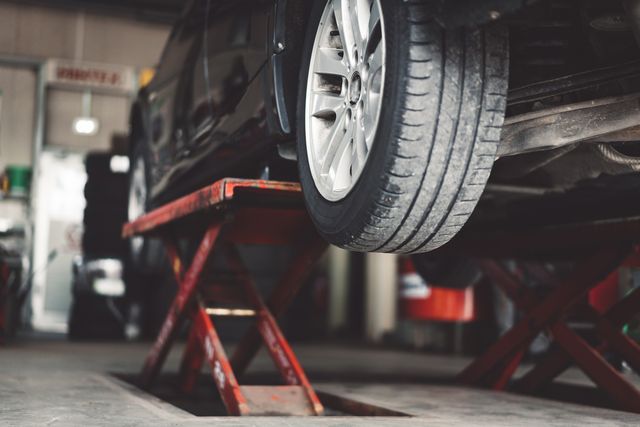
Credit: www.caranddriver.com
The Scope Of Car Insurance Coverage
Car insurance isn’t just a legal requirement—it’s a financial safety net. Understand the scope of your car insurance. Know what it covers in case of vehicle damage. Bank on your policy to manage repair costs without stress.
Types Of Car Insurance Policies
- Liability Insurance: Covers costs for damage and injuries you cause others.
- Collision Insurance: Pays for your car’s repairs after an accident.
- Comprehensive Insurance: Handles non-collision related damage.
What Is Covered Under Comprehensive And Collision Insurance
| Insurance Type | Coverage |
|---|---|
| Comprehensive | Theft, vandalism, storms, and animal damage |
| Collision | Repairs from crashes, regardless of who’s at fault |
Utilize comprehensive and collision insurance for peace of mind. Overcome the financial hurdles of vehicle repair. Ensure your car’s longevity with the right insurance.
Understanding Repair Coverage
Dealing with car repairs can be stressful and expensive. But car insurance might take some of that burden off your shoulders. Understanding repair coverage is key to knowing when your policy will come to the rescue. Let’s dive into the specifics.
Situations Where Insurance Pays For Car Repairs
Not all car mishaps mean out-of-pocket expenses. Many times, your insurance policy has your back. Let’s look at some common scenarios where insurance might cover repair costs.
- Accidents: Collision coverage helps with repairs after an accident.
- Vandalism: Comprehensive coverage may pay for damages.
- Weather damage: Storms or hail-damaged cars could get repairs covered too.
- Hit and run: Uninsured motorist property damage might step in.
Common Exclusions In Repair Coverage
However, not every situation is covered. Policies have exclusions that are important to understand.
| Wear and Tear | Regular aging and breakdown are generally not covered. |
| Mechanical Breakdowns | Insurance typically doesn’t cover engine or transmission failures. |
| Intentional Damage | Deliberate harm to your vehicle is not covered. |
| Custom Additions | Modifications beyond original specs may not be covered. |
To ensure smooth coverage, read your policy carefully and stay informed about your coverage limits and deductibles.
Navigating The Claims Process
Navigating the Claims Process can feel like a maze, with twists and turns that confuse many drivers. Luckily, knowing the path to take makes all the difference. Let’s explore how car insurance can aid with repairs and bring you back to smooth driving.
Steps To Filing A Claim For Repairs
Filing a claim might seem daunting, but it’s simpler with a clear guide. Here’s how to get started:
- Contact your insurer as soon as possible after the incident. Timing matters.
- Prepare your policy number and incident details to provide clear information.
- Gather evidence: take photos of the damage, location, and any involved third-party vehicles.
- Complete your insurer’s claim form. Be thorough and honest.
- Choose a repair shop if your policy allows. Some insurers require you to use their network shops.
- Wait for the claim adjuster to review the damage and estimate costs.
Swift responses and accurate information can speed up this process significantly.
How Insurers Assess Repair Costs
Insurers need a method to translate damage into numbers. They do this through:
- Inspection by a claims adjuster, who estimates repair costs firsthand.
- Use of repair estimating software, for consistent figures across claims.
- Comparison with market rates for parts and labor in your area.
This assessment decides how much the insurer contributes to your car’s repairs.
Every insurer’s approach to cost assessment may vary slightly. Know your policy to avoid surprises.
Choosing The Right Repair Shop
After a car accident, getting your vehicle fixed is a top priority. Your insurance policy might cover repairs. Yet, where to take your car matters. It can affect how much you pay out-of-pocket and your car’s future performance.
Learn about insurance-preferred and independent garages. Find out how your choice impacts insurance claims.
Insurance Preferred Repair Shops Vs. Independent Garages
Insurance companies often partner with certain repair shops. These are insurance-preferred repair shops. They may promise quicker turnarounds or direct billing to the insurer.
- Different standards of quality assurance
- Insurance guarantees on repair work
- Possibility of savings on deductibles
Independent garages are not tied to insurance networks. They are options for those who want more control.
- Personalized service experience
- Freedom to choose parts and repair methods
- Support for local businesses
Impact Of Repair Shop Choice On Insurance Claims
Your choice of repair shop can have a big impact on your insurance claim. This is crucial when dealing with costs and quality.
| Insurance-Preferred Shop | Independent Garage |
|---|---|
| May have streamlined claims process | May require more work from you to get claims settled |
| Repair costs are often pre-negotiated | You may have bargaining power over costs |
| Workmanship might be guaranteed by insurer | Quality depends on shop’s reputation and warranty |
Before picking a shop, check your policy. Know if you’re bound to specific shops or free to choose. Your decision will impact convenience, cost, and car health after repair.
Deductibles And Out-of-pocket Costs
Understanding Deductibles and Out-of-Pocket Costs is essential when dealing with car insurance and repairs. These play a pivotal role in how much money you may end up paying from your pocket after an accident. Let’s dive into how deductibles impact your repair coverage and ways to manage expenses not covered by insurance.
How Deductibles Affect Repair Coverage
Your insurance policy’s deductible is the amount you agree to pay before your insurer covers the remaining costs. Choosing a higher deductible often lowers your regular insurance bills. But, it means putting down more money if you file a claim. Here’s how deductibles work:
- Lower deductible: Less out-of-pocket expense per claim, higher premiums.
- Higher deductible: More out-of-pocket expense per claim, lower premiums.
When your car needs repairs after an accident, the deductible is deducted from the total cost. You pay this portion directly to the repair shop. Your insurance takes care of the rest, up to your policy’s limits.
Managing Expenses Not Covered By Insurance
Sometimes, insurance doesn’t cover all repair costs. This could be due to your policy limitations, or certain types of damages not being included. Here are tips to handle such situations:
- Know your policy’s details. Understand what it covers and excludes.
- Set aside an emergency fund for unexpected car expenses.
- Explore garage options. Some may offer quality service at lower rates.
- Consider aftermarket or used parts for repairs to save cost.
Maintaining a good relationship with your insurer helps too. They can sometimes offer flexibility or advise on cost-saving measures post-accident.
:max_bytes(150000):strip_icc()/car-repair-following-insurance-claim-accident-527113_color-e5cd60eaed274db5b5e65c860183cd64.png)
Credit: www.thebalancemoney.com
Preventative Measures And Maintenance
Proper car care does more than just keep your vehicle running smoothly. It can also impact your insurance. Many car owners don’t realize that their approach to preventative measures and maintenance can have a direct effect on their insurance experience, from claim processing to potential discounts. Regular maintenance can actually become a financial advantage when it comes to handling your car insurance. Let’s dive into how staying on top of your vehicle’s health can make a difference.
Role Of Regular Maintenance In Insurance Claims
Maintaining your car isn’t only about avoiding breakdowns; it’s about keeping claims stress-free. Insurance companies often assess the condition of your vehicle during claims. Cars with a tracked record of regular maintenance can show that damages are likely due to a covered incident, and not neglect.
An improperly maintained car can lead to claims being questioned or denied. For example, if brake pads were excessively worn and contributed to an accident, an insurer might see this as preventable. On the other hand, if you’ve kept up with your brake pad replacements, an insurer is more likely to process your claim without issues.
Documenting regular maintenance—like oil changes, brake check-ups, and tire rotations—proves responsibility. Your car’s service records can become vital evidence supporting your claims.
Insurance Discounts And Rewards For Vehicle Upkeep
Insurance companies love responsible owners. Many offer discounts and rewards for drivers who take vehicle maintenance seriously. Insurers see regularly serviced vehicles as a lower risk. This can translate to savings for you, the policyholder.
Some insurers have specific programs that give discounts for regular maintenance. Others might offer a lower premium if you can prove ongoing vehicle care. The discounts can vary, but the message is clear: keep your car in top shape, and you might just see financial rewards.
Moreover, some policies come with added perks, like free or discounted vehicle check-ups and maintenance services. Engaging in these offers can not only extend your car’s life but also keep your wallet happy by reducing out-of-pocket expenses over time.
- Lower insurance premiums for well-maintained cars
- Discounted rates through loyalty programs
- Reward points for services at certified centers
By embracing preventative measures and regular maintenance, you are not just ensuring a healthy car, but potentially a healthier insurance policy as well. A stitch in time, as they say, saves nine, and in the world of car insurance, it could also save you hundreds.
Frequently Asked Questions For Can Car Insurance Help With Repairs
Does Car Insurance Cover An Oil Leak?
Standard car insurance typically does not cover oil leaks. Coverage for this type of maintenance issue would generally require mechanical breakdown insurance.
What Is A Deductible In Car Insurance?
A deductible in car insurance is the amount you pay out-of-pocket before insurance covers the remaining costs of a claim.
Does Insurance Cover Broken Axle?
Insurance may cover a broken axle if it results from a covered incident, like an accident or collision. Check your policy’s collision or comprehensive coverage for details.
Does Allstate Insurance Cover A Blown Engine?
Allstate insurance typically does not cover a blown engine unless it results from a covered incident like an accident. Regular maintenance issues are excluded from coverage.
Conclusion
Navigating car insurance for repairs needn’t be daunting. Your policy can be a true ally in times of need, covering costs and ensuring quality fixes. Remember, understanding your coverage is key—empower yourself by knowing the ins and outs. Drive confidently, knowing your insurance has your back for the bumps ahead.

